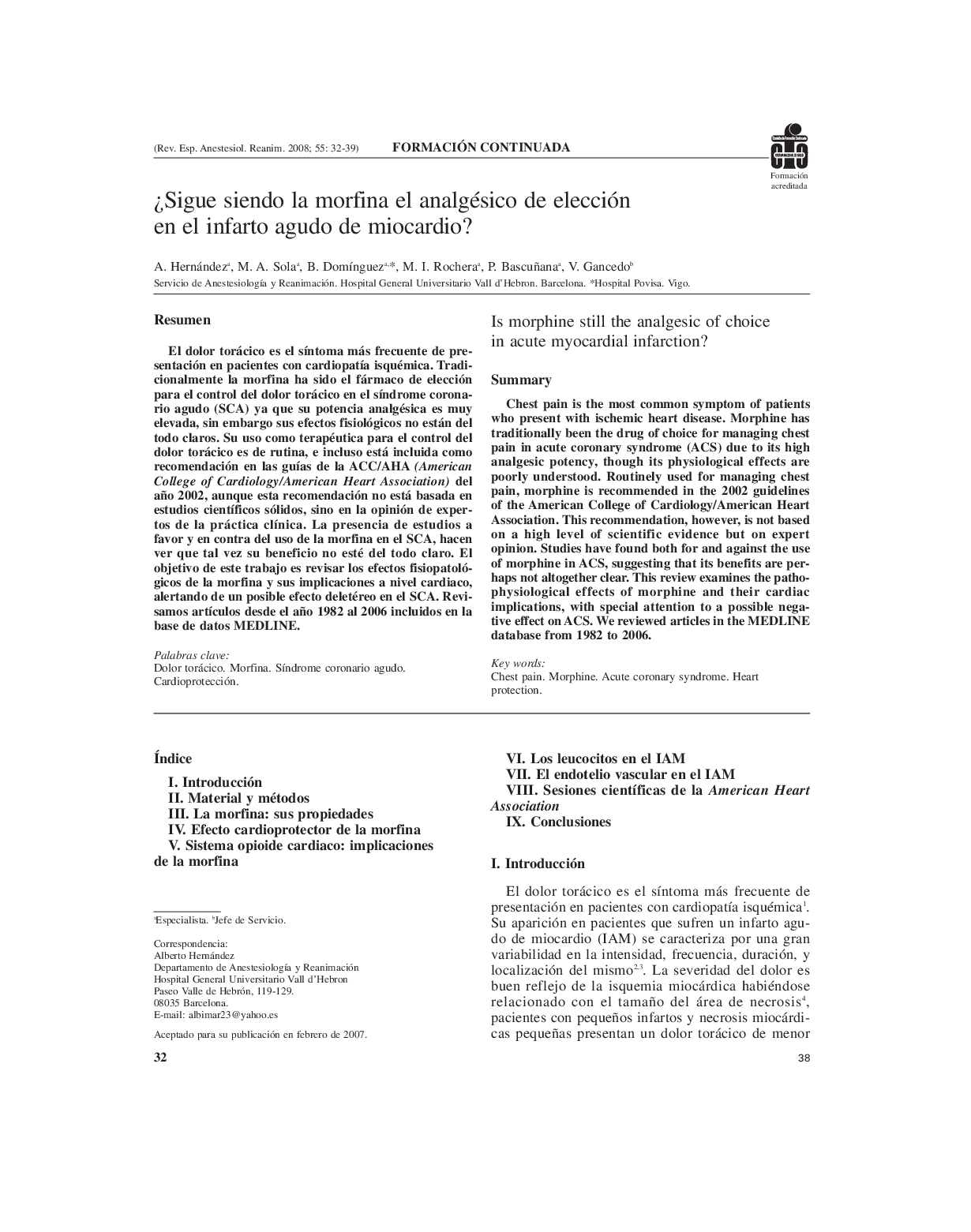| Article ID | Journal | Published Year | Pages | File Type |
|---|---|---|---|---|
| 2769429 | Revista Española de Anestesiología y Reanimación | 2008 | 8 Pages |
Abstract
Chest pain is the most common symptom of patients who present with ischemic heart disease. Morphine has traditionally been the drug of choice for managing chest pain in acute coronary syndrome (ACS) due to its high analgesic potency, though its physiological effects are poorly understood. Routinely used for managing chest pain, morphine is recommended in the 2002 guidelines of the American College of Cardiology/American Heart Association. This recommendation, however, is not based on a high level of scientific evidence but on expert opinion. Studies have found both for and against the use of morphine in ACS, suggesting that its benefits are perhaps not altogether clear. This review examines the patho-physiological effects of morphine and their cardiac implications, with special attention to a possible negative effect on ACS. We reviewed articles in the MEDLINE database from 1982 to 2006.
Keywords
Related Topics
Health Sciences
Medicine and Dentistry
Anesthesiology and Pain Medicine
Authors
A. Hernández, M.A. Sola, M.I. Rochera, P. Bascuñana, V. Gancedob, B. DomÃnguez,
